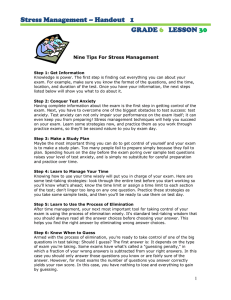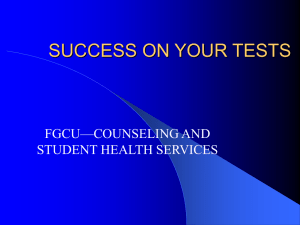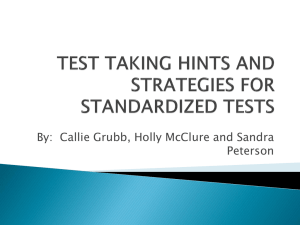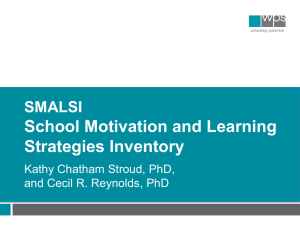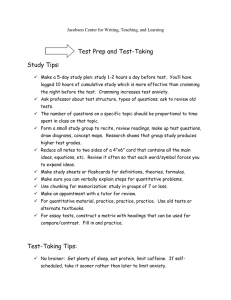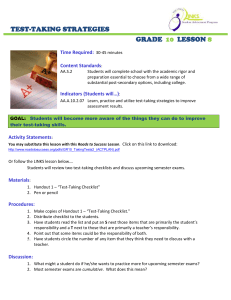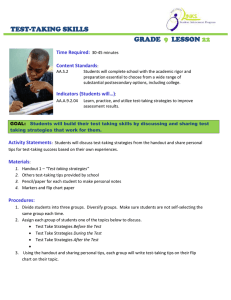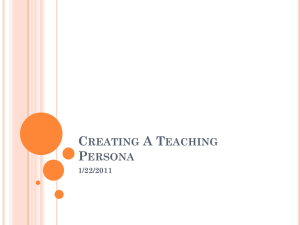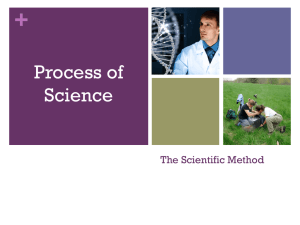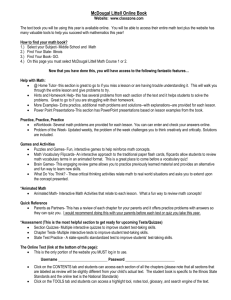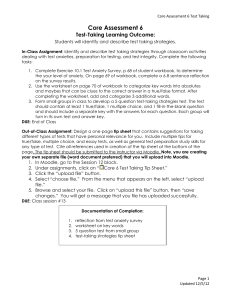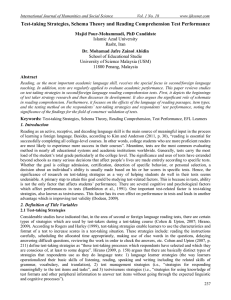Skills that can help you get the best grade possible
advertisement
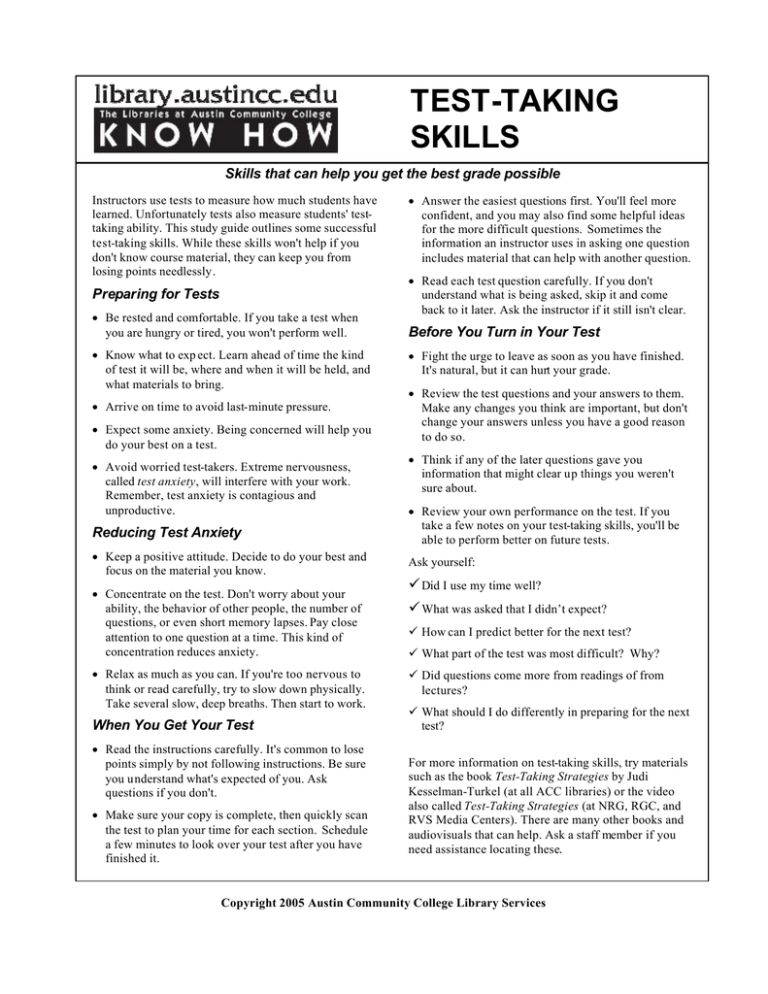
FFFFF TEST-TAKING SKILLS Skills that can help you get the best grade possible Instructors use tests to measure how much students have learned. Unfortunately tests also measure students' testtaking ability. This study guide outlines some successful test-taking skills. While these skills won't help if you don't know course material, they can keep you from losing points needlessly. Preparing for Tests • Be rested and comfortable. If you take a test when you are hungry or tired, you won't perform well. • Know what to exp ect. Learn ahead of time the kind of test it will be, where and when it will be held, and what materials to bring. • Arrive on time to avoid last-minute pressure. • Expect some anxiety. Being concerned will help you do your best on a test. • Avoid worried test-takers. Extreme nervousness, called test anxiety, will interfere with your work. Remember, test anxiety is contagious and unproductive. Reducing Test Anxiety • Keep a positive attitude. Decide to do your best and focus on the material you know. • Concentrate on the test. Don't worry about your ability, the behavior of other people, the number of questions, or even short memory lapses. Pay close attention to one question at a time. This kind of concentration reduces anxiety. • Relax as much as you can. If you're too nervous to think or read carefully, try to slow down physically. Take several slow, deep breaths. Then start to work. When You Get Your Test • Read the instructions carefully. It's common to lose points simply by not following instructions. Be sure you understand what's expected of you. Ask questions if you don't. • Make sure your copy is complete, then quickly scan the test to plan your time for each section. Schedule a few minutes to look over your test after you have finished it. • Answer the easiest questions first. You'll feel more confident, and you may also find some helpful ideas for the more difficult questions. Sometimes the information an instructor uses in asking one question includes material that can help with another question. • Read each test question carefully. If you don't understand what is being asked, skip it and come back to it later. Ask the instructor if it still isn't clear. Before You Turn in Your Test • Fight the urge to leave as soon as you have finished. It's natural, but it can hurt your grade. • Review the test questions and your answers to them. Make any changes you think are important, but don't change your answers unless you have a good reason to do so. • Think if any of the later questions gave you information that might clear up things you weren't sure about. • Review your own performance on the test. If you take a few notes on your test-taking skills, you'll be able to perform better on future tests. Ask yourself: ü Did I use my time well? ü What was asked that I didn’t expect? ü How can I predict better for the next test? ü What part of the test was most difficult? Why? ü Did questions come more from readings of from lectures? ü What should I do differently in preparing for the next test? For more information on test-taking skills, try materials such as the book Test-Taking Strategies by Judi Kesselman-Turkel (at all ACC libraries) or the video also called Test-Taking Strategies (at NRG, RGC, and RVS Media Centers). There are many other books and audiovisuals that can help. Ask a staff member if you need assistance locating these. Copyright 2005 Austin Community College Library Services
